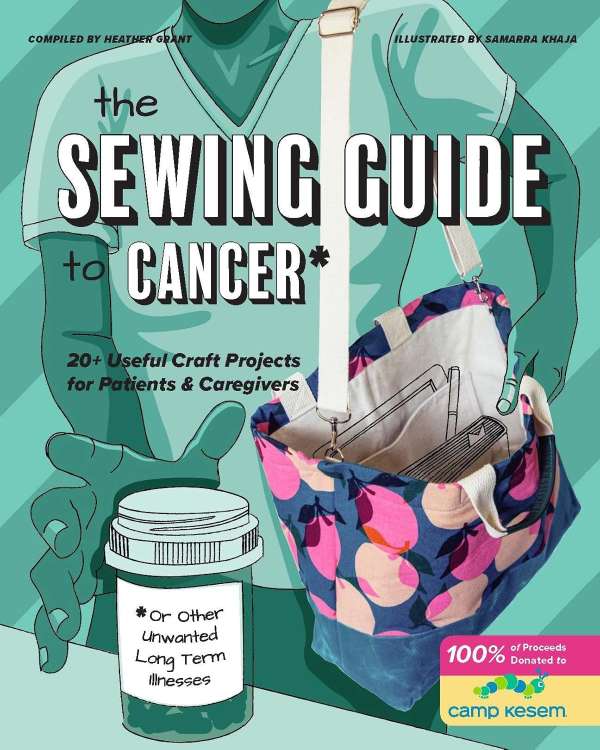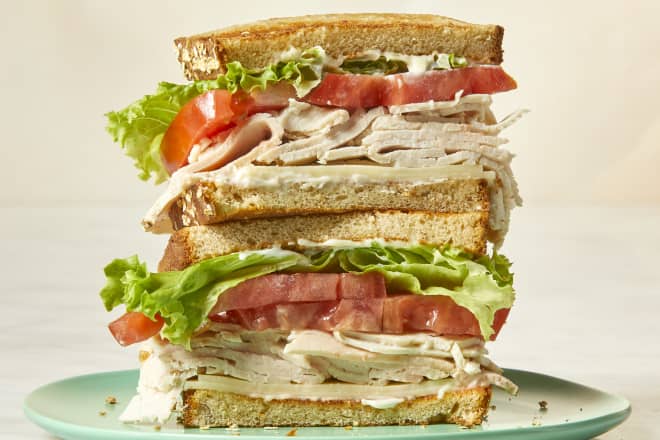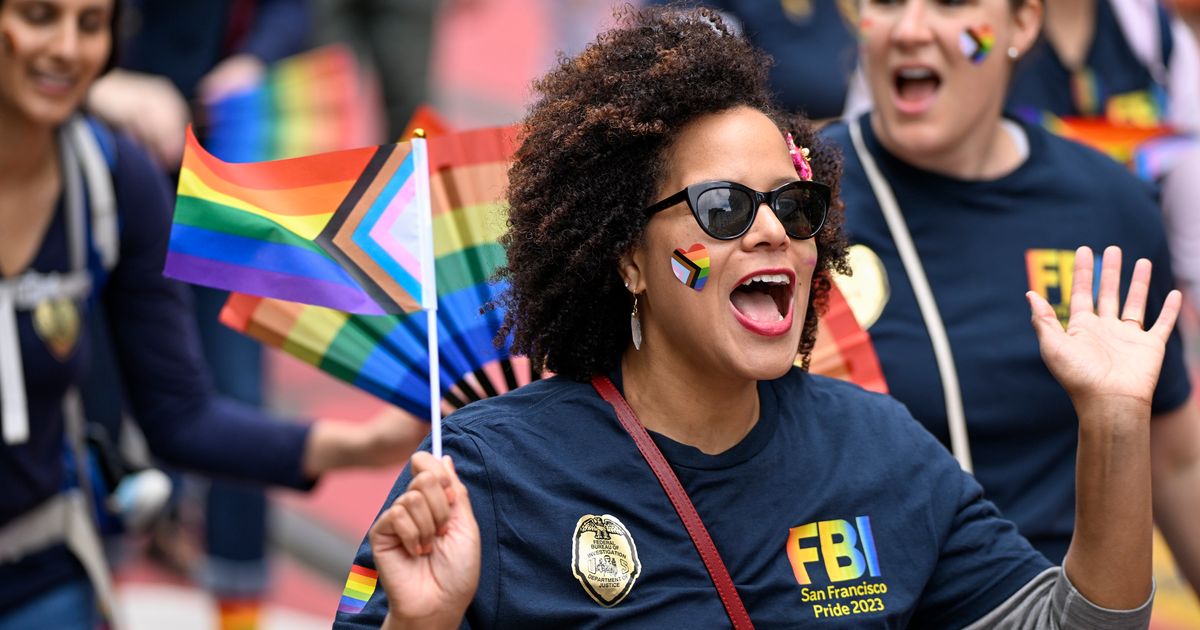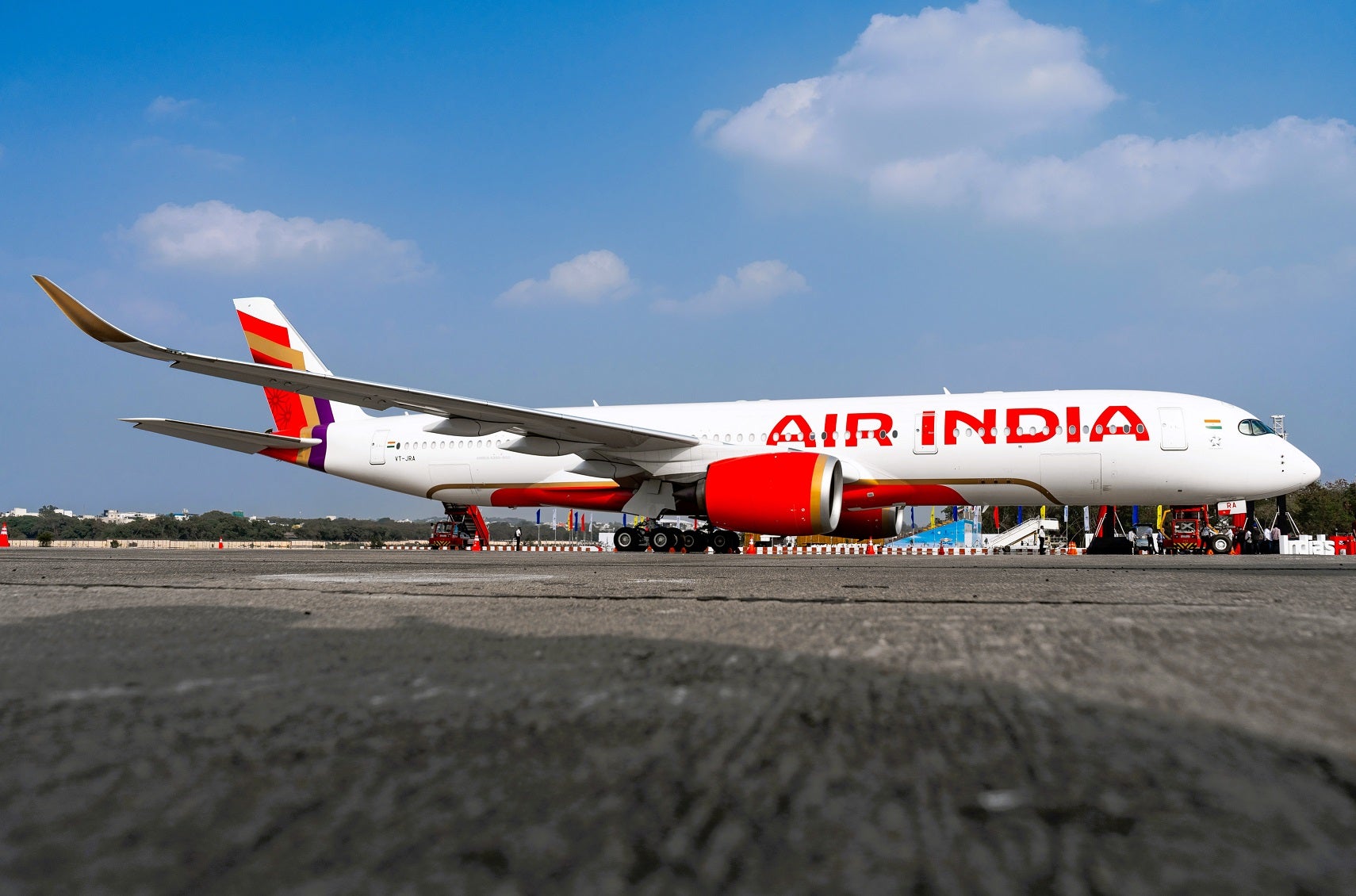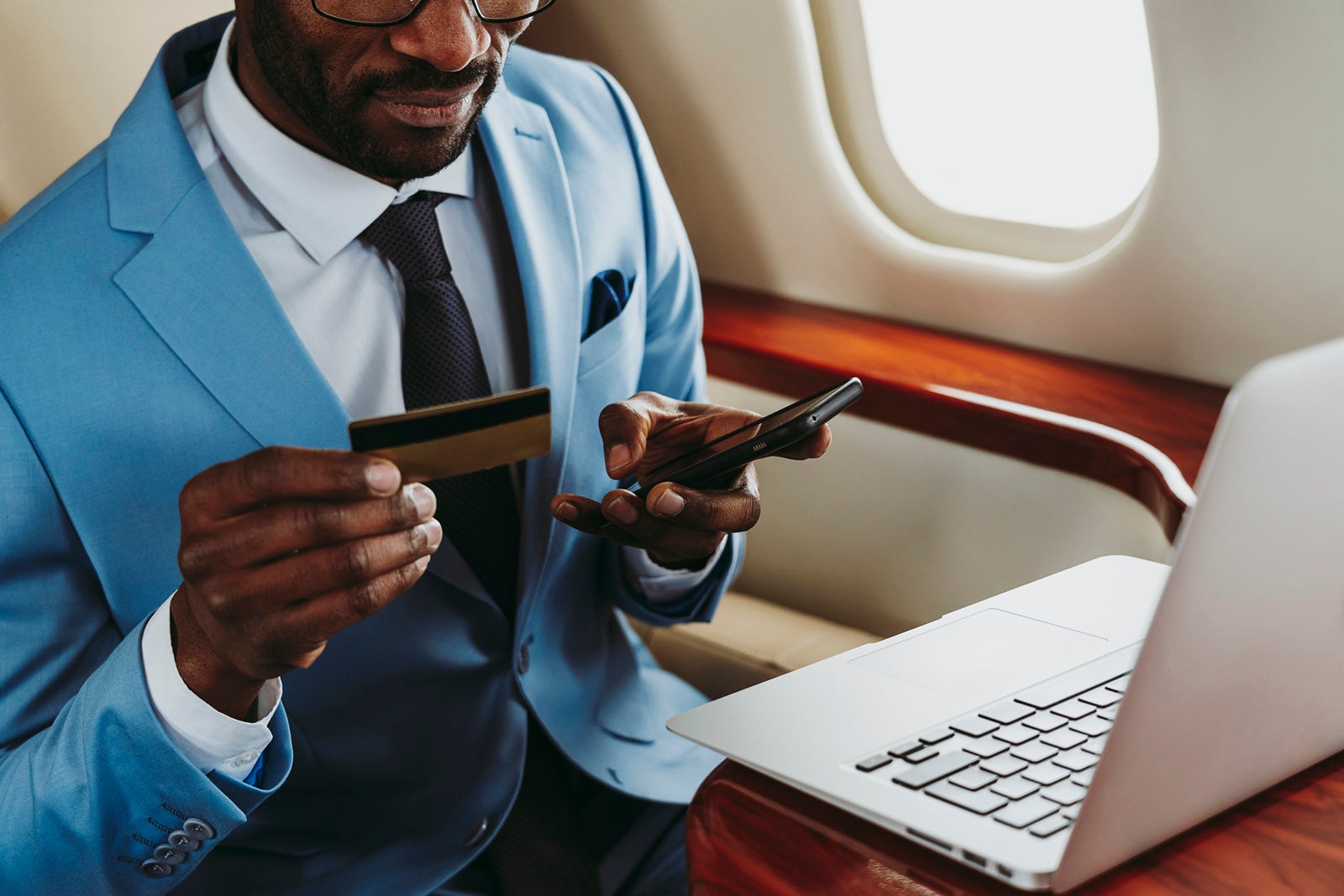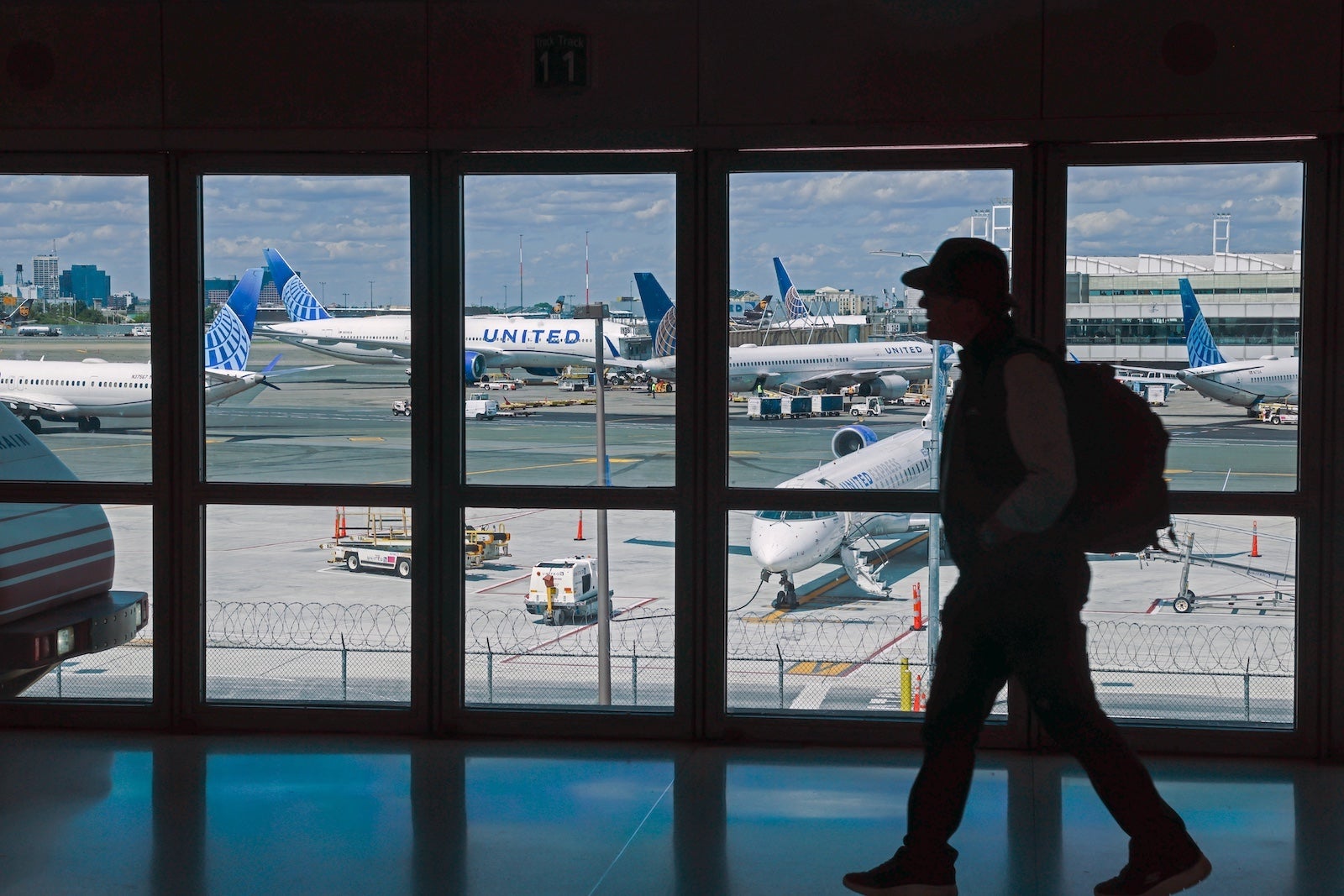Airlines banned these 4 passengers for life — here’s how to avoid their fate
The Federal Bureau of Investigation’s No Fly List contains the identities of known and suspected terrorists who are forbidden from flying into, out of or over the U.S. But did you know that airlines also have internal no-fly lists filled with the names of former passengers banned forever? These four frequent travelers, who contacted my …
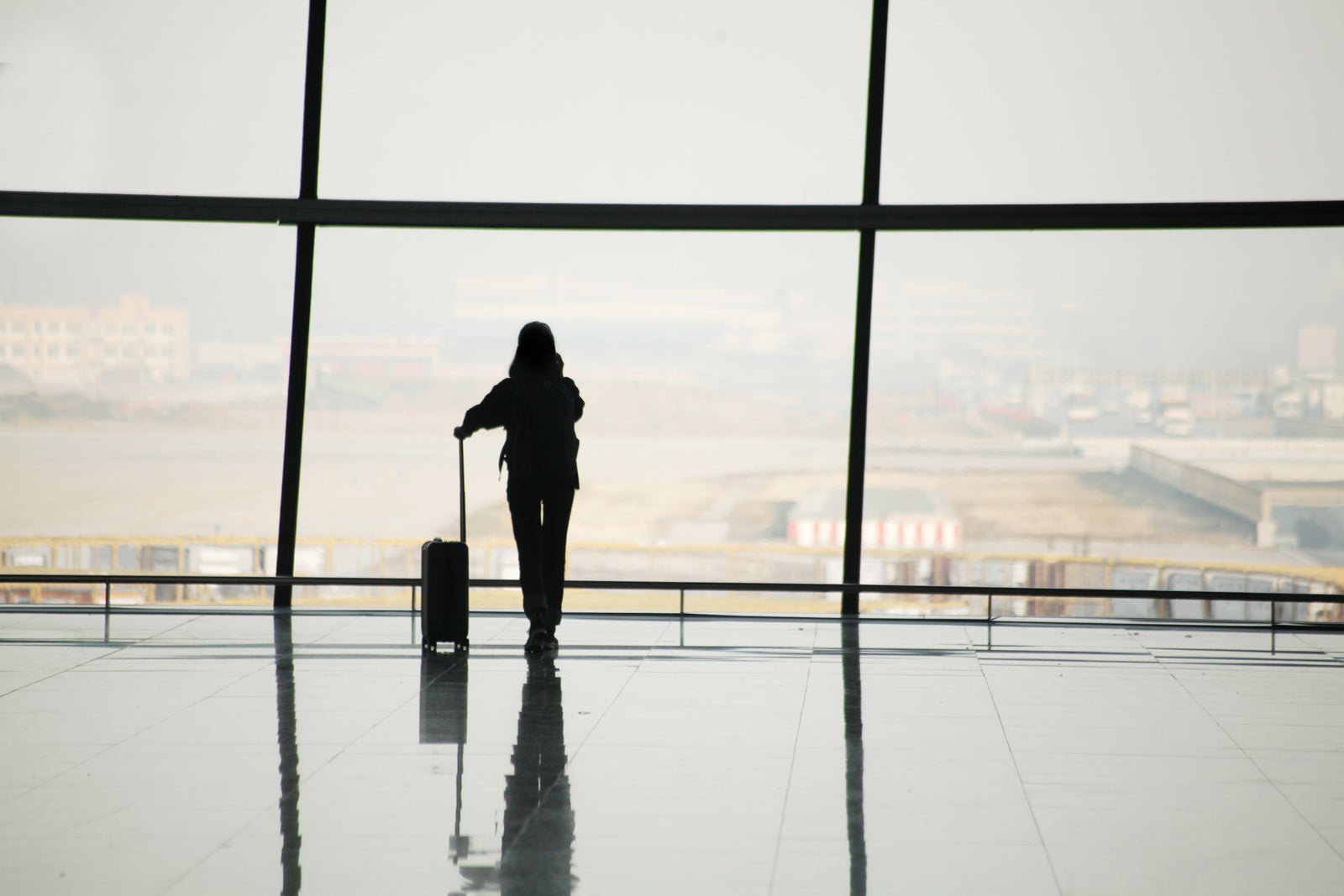
The Federal Bureau of Investigation’s No Fly List contains the identities of known and suspected terrorists who are forbidden from flying into, out of or over the U.S. But did you know that airlines also have internal no-fly lists filled with the names of former passengers banned forever?
These four frequent travelers, who contacted my advocacy organization, Consumer Rescue, found out firsthand about airline-specific no-fly lists in decidedly unpleasant ways.
For some former airline passengers, their banishment was a predictable outcome of their bad behavior. For others, the reason behind their inclusion on a no-fly list was not as clear.
Here’s what you need to know about those internal no-fly lists and how to avoid landing on one, because in my 10 years of experience working with consumers, I can confirm that a passenger’s journey to an airline’s no-fly list is almost always an unpleasant one-way trip.
A stay-at-home mom loses her temper at the United Airlines gate
United Airlines recently permanently banned Sarah R., a self-described mild-mannered stay-at-home mom with no history of running afoul of the law. She contacted me months after the incident, hoping I might be able to negotiate a reprieve.
“I believe this is all just a misunderstanding,” she told me. “I’m a nice person and I didn’t do what United Airlines says I did.”
On the morning of the incident, Sarah and her teenage daughter headed to Chicago’s O’Hare International Airport (ORD), embarking on a whirlwind trip to visit potential colleges.
But as they were about to board their flight at Louis Armstrong New Orleans International Airport (MSY), a gate agent stopped Sarah. Her rollaboard was too large and needed to be gate-checked.
“I admit, I was aggravated,” Sarah said. “But I soon gave up and I pushed my bag toward the agent. It rolled away from me and bumped into her [the United Airlines agent]. She yelled out like it was painful and then walked away. I apologized profusely to everyone still standing there. Then I got on the plane and sat down.”
But not for long.
Minutes later, airport security entered the aircraft and told Sarah to gather her belongings and deplane.
“I was shocked. They told me that the United agent said I ran over her foot on purpose,” Sarah recalled. “That wasn’t true. I didn’t intentionally touch her. I would never do that. It turns out she had just returned from medical leave after a foot surgery. The little bump caused her a great deal of pain.”
Not flying on this flight or any other with United
With security staff flanking her, Sarah attempted to explain the situation and continued to apologize, but it was no use. A United Airlines supervisor and the airport police said she wouldn’t be reboarding the flight.
Mortified at the turn of events, Sarah booked a flight on another airline later that morning.
“I figured the agent was just having a bad day, and that would be the end of it,” Sarah said. “I never imagined what was to come.”
She was about to find out that the incident was far from over.
United’s Passenger Incident Review Committee
Initially, United told Sarah she was banned from flying until her case went before its Passenger Incident Review Committee, indicating United considered the situation quite serious and that Sarah’s rendition of what happened wasn’t in line with the airline’s. (For a case to be taken in front of the PIRC, it must be considered a Level 2 or higher incident, meaning that a “passenger has physically assaulted a crew member.”)
After the PIRC’s investigation, it issued the most severe outcome available.
“Our review of the reported incident revealed that you exhibited disruptive behavior in the gate area when you intentionally kicked your luggage towards one of our employees, making unwanted physical contact with them,” United’s PIRC said. “Based on the severity of this incident, we believe that your presence onboard future United flights creates a threat to the safety of our employees and passengers. Consequently, we are permanently banning you from travel on United and United Express partner flights. If you attempt to board one of our aircraft, we will take appropriate measures to prevent your carriage. We do not take this regrettable action lightly.”
The decision by the PIRC devastated Sarah. She thought I might be able to help her in some way. She was willing to get letters of recommendation and other proof of her good character, but I knew from past cases that once a passenger is determined to have physically assaulted an airline employee, there is no going back.
However, I wondered how Sarah could have had a vastly different version of what happened that day. So, I asked our executive contact at United Airlines. She told me that the case had been reviewed and appealed and that the airline had no further comment.
The lesson: Air passengers should always maintain their cool and never, under any circumstances, make physical contact with an employee. Remember, if an airline agent tells you it’s necessary to gate-check your bag, you must. No amount of questioning or arguing will change the situation. It may be inconvenient, but being thrown off your flight and permanently banned is significantly more inconvenient.
A passenger has an alcohol-fueled outburst after a delayed American Airlines flight
When American Airlines’ AAdvantage Executive Platinum member Bill B. wasn’t cleared to board his standby flight, he headed straight to the lounge. He intended to have a drink and unwind while waiting for his confirmed flight.
Then his confirmed flight became delayed. As the hours stretched on, Bill lost track of the number of drinks he was consuming. Before long, he was drunk and irritable.
He lost his temper when he went to the gate and heard that the flight had just been canceled.
“I just got mad and started yelling at them and the cops grabbed me from behind and arrested me,” Bill said. “I made no threats to anyone. My behavior was the result of being up all night, with no food in me and then the alcohol.”
Bill was arrested for public intoxication and removed from the airport. He later received a letter from American Airlines’ Corporate Security announcing his permanent placement on the airline’s no-fly list. In his case, he was also banned from any codeshared flights operated by American Airlines.
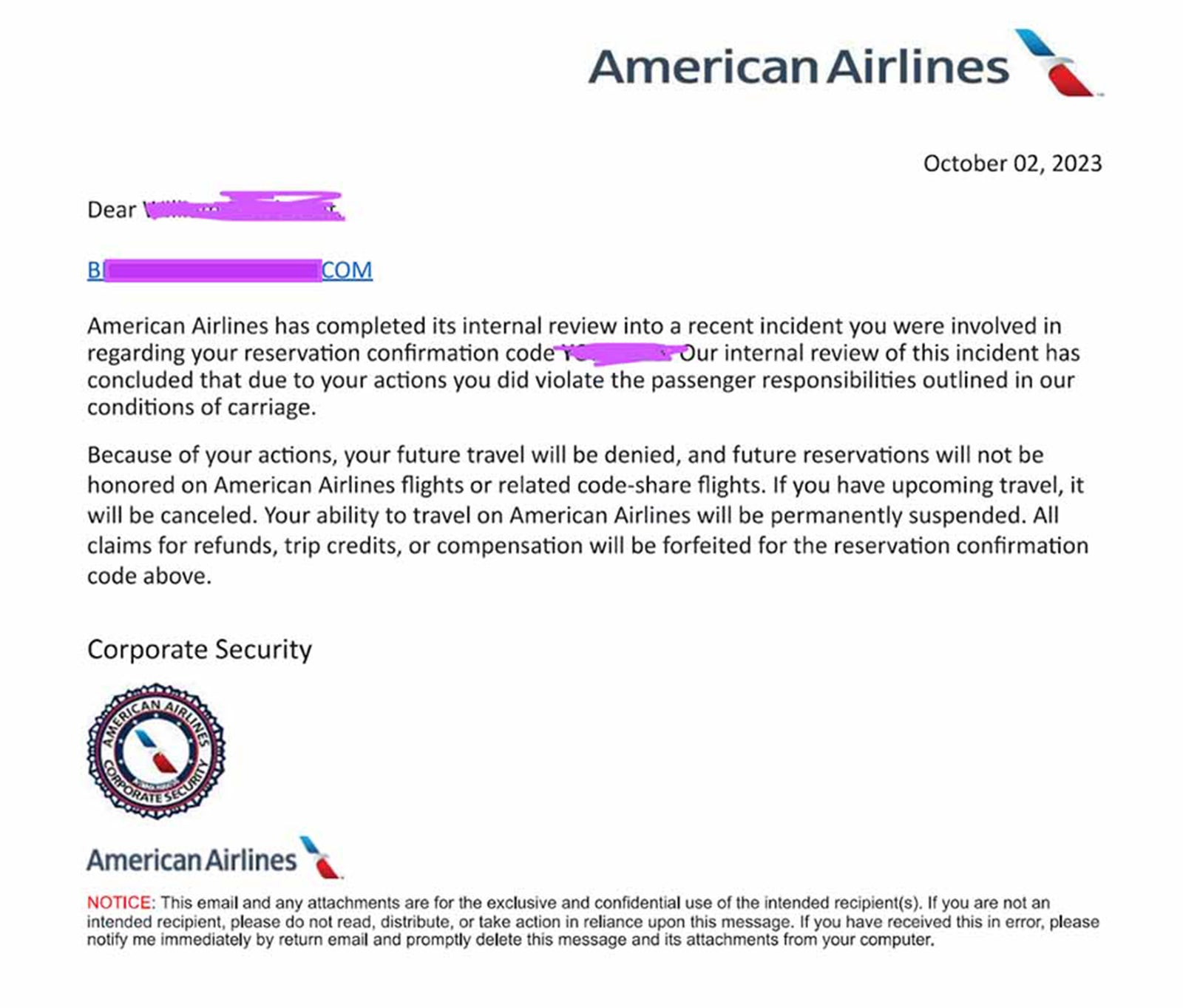
Like Sarah, Bill was similarly stunned at finding himself in such an embarrassing and serious situation.
“I’ve never had a problem before in my life. I’m a veteran and an upstanding citizen,” Bill told me. “I would be happy to agree never to drink again at the airport or on a flight if AA would lift the ban.”
Unfortunately for Bill, I knew from the letter he received that his case had reached the highest levels of authority at American Airlines.
Nonetheless, I forwarded Bill’s apology and his explanation of what happened to our executive contact at American Airlines. As I assumed, she also had no comment. His case had already been permanently moved to the legal department. Because Bill confided in me that he was employed by a branch of the government that has a contract with American Airlines, I recommended that he get an attorney who could guide him further.
The lesson: Watch your alcohol intake during an extended flight delay, and make sure you eat and drink water if you consume any alcohol. If you don’t, and your flight is repeatedly delayed, those cocktails can pile up and you might find yourself too inebriated to fly … or maybe even too drunk to maintain control of yourself.
Remember, excessive alcohol can turn even the nicest people into disruptive troublemakers. And at the airport, that can be disastrous.
A traveler overshares her extreme frustration with airline customer service agents
Sometimes, airlines ban passengers before they even get to the airport.
Lisa B., a former JetBlue customer, was an impatient bride-to-be with good reason. In early 2020, she and her fiance paid JetBlue Vacations $14,000 for their wedding and honeymoon at Sandals Royal Barbados. However, those plans were waylaid when the coronavirus pandemic descended upon the world.
During the next two years, JetBlue Vacations rescheduled the couple four times.
“Each of those times, JetBlue scheduled our flights without even checking if Sandals had reopened. It hadn’t,” Lisa recalled. “It was ridiculous. I’m not sure what would have happened if we had actually taken those flights.”
Finally, in 2022, it seemed that the day Lisa had been waiting for had arrived. The resort was reopened, and flights were operating to the island. Because her trip had been canceled and rebooked many times, Lisa says she was now working with JetBlue’s “Special Operations team.” She hoped the fifth time rescheduling her wedding would be a charm, but then, a new problem interfered with their plans.
“Just a short time before we were scheduled to go, I learned that the agent hadn’t booked us the room category we paid for and it was no longer available,” Lisa told me. “They [JetBlue] said we would have to cancel and rebook at a later date.”
After a long day at work, an agitated Lisa demanded to speak to a supervisor and then “used some vulgar words” to convey her dissatisfaction at JetBlue.
“All the stress and anxiety that had built up over the years boiled over and I lost it,” she admitted. “I was saying a lot of not nice things and threatened that a lawsuit was heading JetBlue’s way. Then I hung up.”
The next morning, Lisa unexpectedly received a phone call from JetBlue’s corporate offices. Now she was getting somewhere, she thought. Lisa assumed the outreach was meant to be an olive branch from the airline to its unsatisfied customer.
She could not have been more wrong.
JetBlue: ‘You’re not invited to fly on JetBlue again’
The JetBlue executive was not about to apologize or attempt to appease Lisa. He was calling to deliver a stern message to her. Because of her ongoing aggressive complaints and rude behavior toward the carrier’s phone agents, JetBlue had permanently canceled her trip and was refunding the $14,000.
The executive abruptly ended the call, leaving Lisa shocked and in tears.
“A few days later, I received a letter in the mail confirming the refund of the $14,000. But it also said that I was not invited to fly on JetBlue again,” she said. “I’m not a criminal. I’m a good person. I was just very frustrated after years of waiting and I took it out on the phone agent. That was wrong, but I’m not a threat. I don’t want to be banned from JetBlue.”
Lisa’s sentiments about being a good person and temporarily losing control are echoed by many of the banned passengers who contact me. Unfortunately, the airlines are typically unmoved by these self-proclaimed attributes.
As I thought would happen, JetBlue was unimpressed with Lisa’s plea for a second chance. I sent her apology to our JetBlue executive contact, who declined to comment or to lift her “uninvited” status.
The lesson: Travelers should never let frustrations about delays, cancellations or other blips in their plans cause them to behave in a way that could be considered threatening. Remember, when you call customer service, it’s unfair to take out your anger on someone who is meant to help you.
Time and again, I see travelers do things in the heat of the moment that lead to long-term unintended consequences. Before calling a customer service agent who has had no role in creating your problem, take a moment to gather your thoughts. Keep in mind, complaints are always more favorably received when they are delivered in a clear, cordial and concise way.
Don’t make calls in the evening when you’re tired, fatigued or have had a nightcap. Make sure you have your facts straight and your mind is calm before you try to solve your problem. If you don’t, you could also find a lifetime of repercussions in your future.
An influencer tells fibs to get a free upgrade with fake documents
Back in 2019, a self-described influencer with an unusual problem contacted me.
Jackie N. claimed that someone at Cathay Pacific had offered her a free business-class upgrade as a social media influencer. She even had an invitation to prove it, which she presented at the check-in counter on her outbound flight to New York’s John F. Kennedy International Airport (JFK) from Taiwan Taoyuan International Airport (TPE).
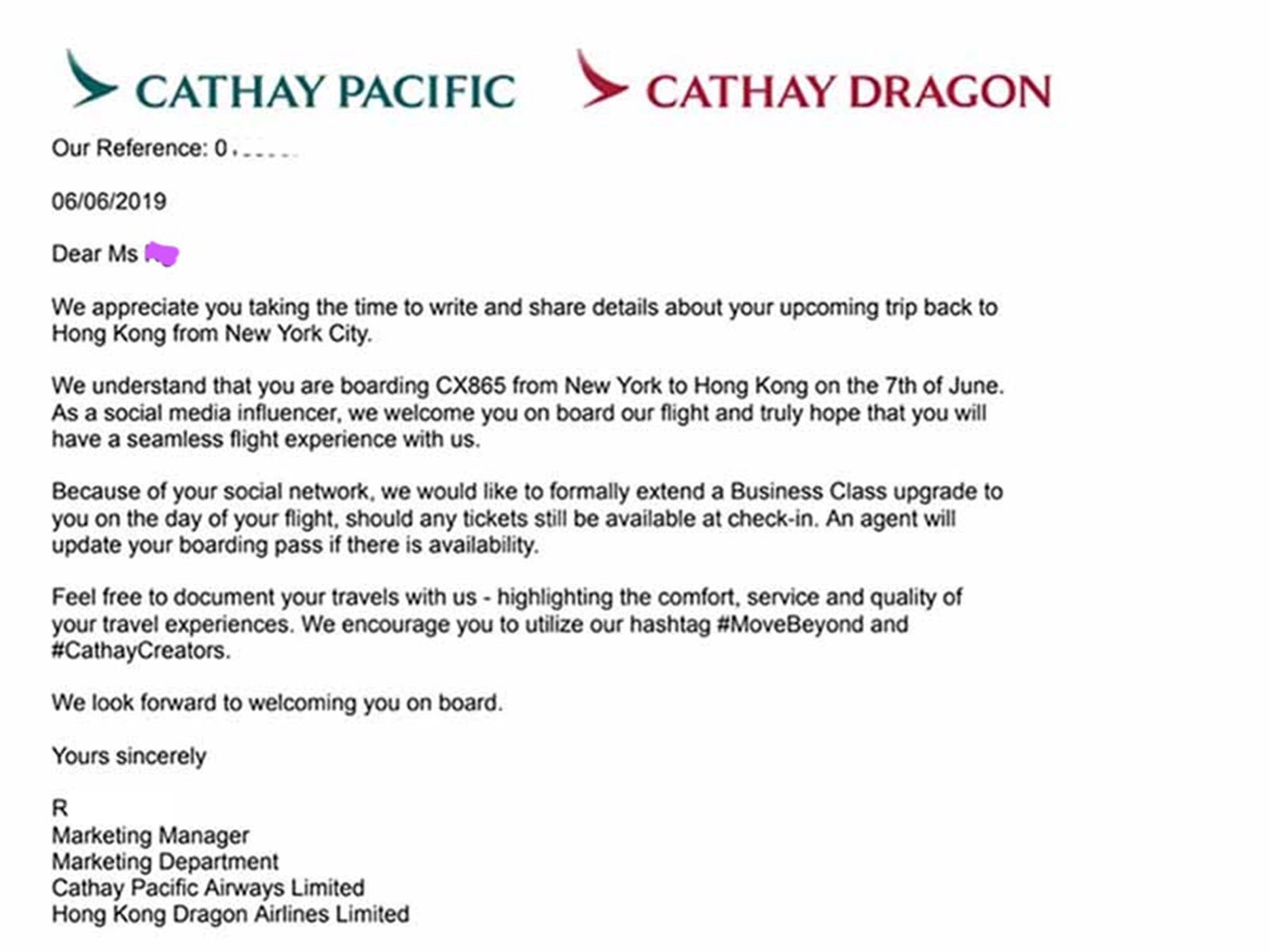
A Cathay Pacific agent reviewed her invitation and made a copy. However, he told her he could not upgrade her on the flight. Jackie boarded the flight and flew to New York in Cathay’s premium economy cabin.
She didn’t know it, but trouble was brewing behind the scenes. When Jackie presented a similar letter at the check-in counter on her way home, a Cathay Pacific agent again took it from her to “copy it.”
Jackie says she waited 30 minutes for someone to return to the desk. When a supervisor finally showed up, he had shocking news for her. As he handed her a denied board card, he told her she would also be banned from all future flights on Cathay Pacific.
“He stated that security said that Cathay Pacific did not send me that email and that I had committed fraud,” Jackie told me.
Jackie attempted to appeal her banishment. Cathay Pacific’s Corporate Security completed an investigation and reiterated that the two upgrade invitations did not come from the airline.
She then sent her request for help defending herself to my advocacy team. Jackie hoped I could get Cathay Pacific to lift the ban. I recommended that she give Cathay the EML file from the two emails she claimed to have received. (EML data is electronic metadata that can prove definitively where an email originates.) That would easily prove where the emails came from.
However, Jackie could not provide the EML information that would prove her side of the story.
Cathay Pacific pulled the employee’s email records from the document’s signature line. There was no evidence he had sent anything to Jackie, and it seemed clear she had fudged the document in hopes of scoring a free upgrade.
To Cathay Pacific, that was an attempt at theft of services.
I asked Cathay Pacific about Jackie’s case, and their executive team confirmed they had thoroughly investigated her situation. They declined to make further comments beyond the ones Jackie had already shared with me.
Jackie had found a quick way straight to the no-fly list on her favorite airline, and it wouldn’t change its decision.
The lesson: Jackie believed her request for an upgrade shouldn’t have led to such serious consequences, especially since Cathay Pacific didn’t grant it. However, the fact remains that attempts at “stealing” from an airline are viewed in the same way as successful schemes.
Forging documents and claiming offers you weren’t given could land you on the airline’s no-fly list, and you could even be charged with theft.
Bottom line
Getting banned from an airline is an embarrassing experience with long-term consequences. The vast majority of the banned passengers I’ve spoken to over the years have one thing in common: Alcohol fueled their bad behavior. So, keep that in mind when you’re in the airport lounge waiting for your flight.
Reading through and abiding by your airline’s contract of carriage is another way to ensure you stay in the carrier’s good graces. You can generally find a link to that document in the footer of the airline’s website. Alternatively, you can find it by searching the airline’s name plus “contract of carriage” online.
Indeed, air travel can sometimes be frustrating. But never let a temporary situation lead you to do something you’ll deeply regret later. Take a breath, put your headphones on and listen to calming music. You’ll eventually get where you’re going — unless you do something that gets you kicked off the plane and banned forever.
If you have a problem with a cruise line, airline, hotel, vacation rental agency, car rental location or credit card company, TPG can help. Send your problem to ombudsman@thepointsguy.com and I’ll help you, too, if I can.

































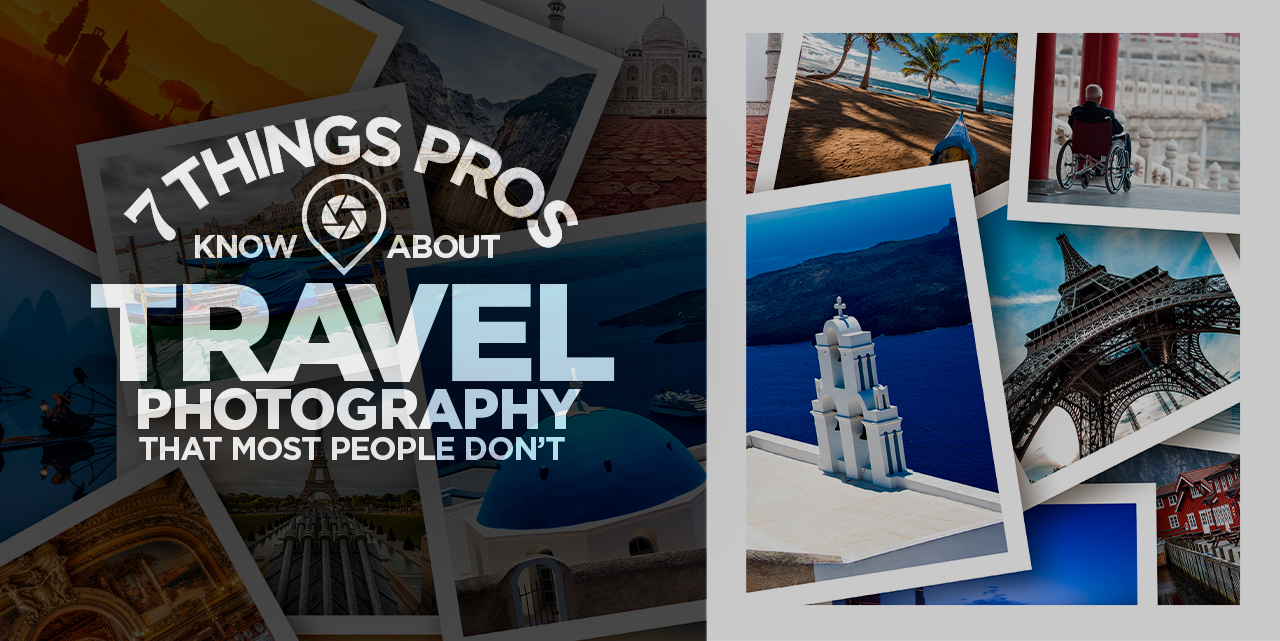

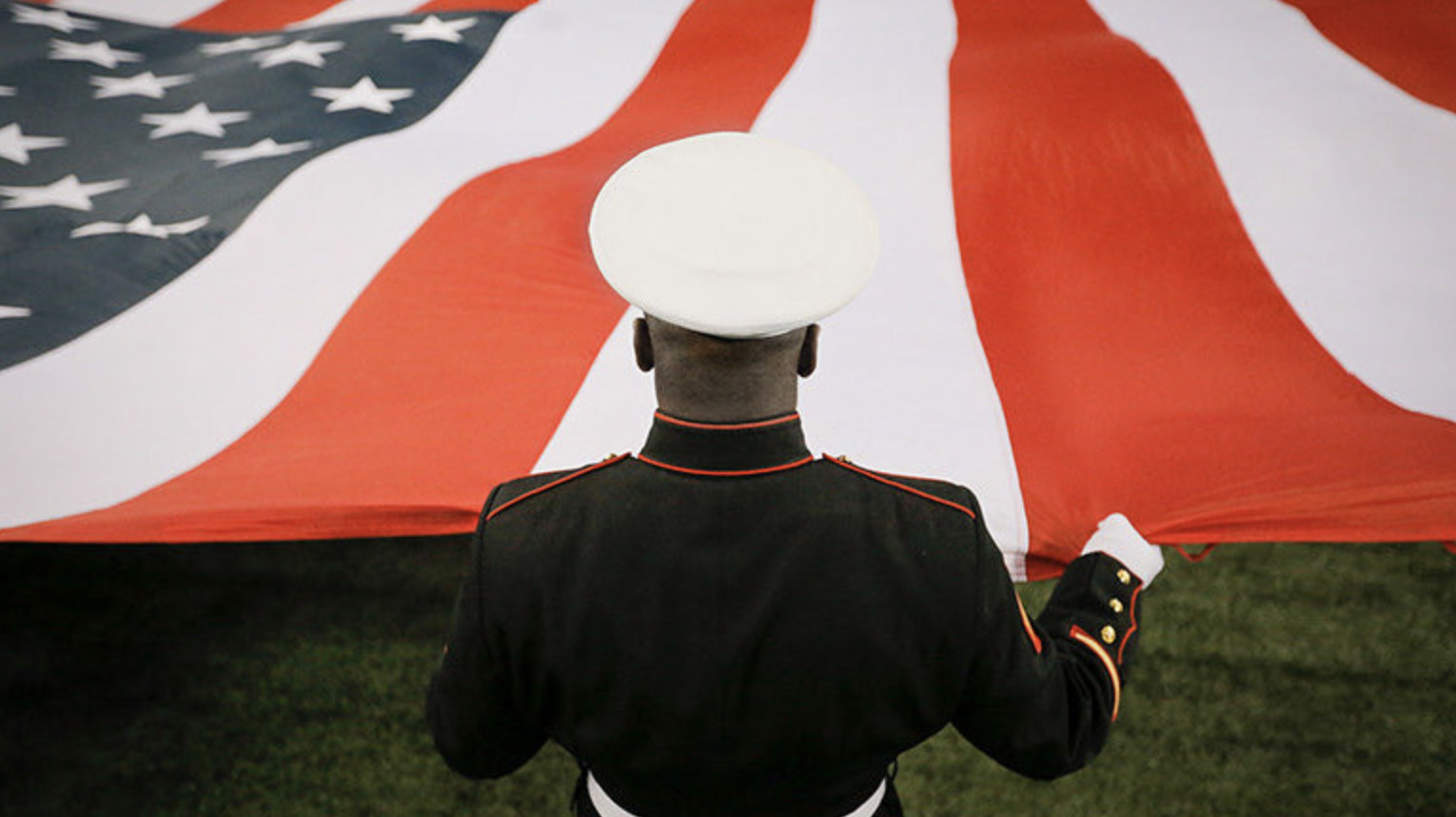



















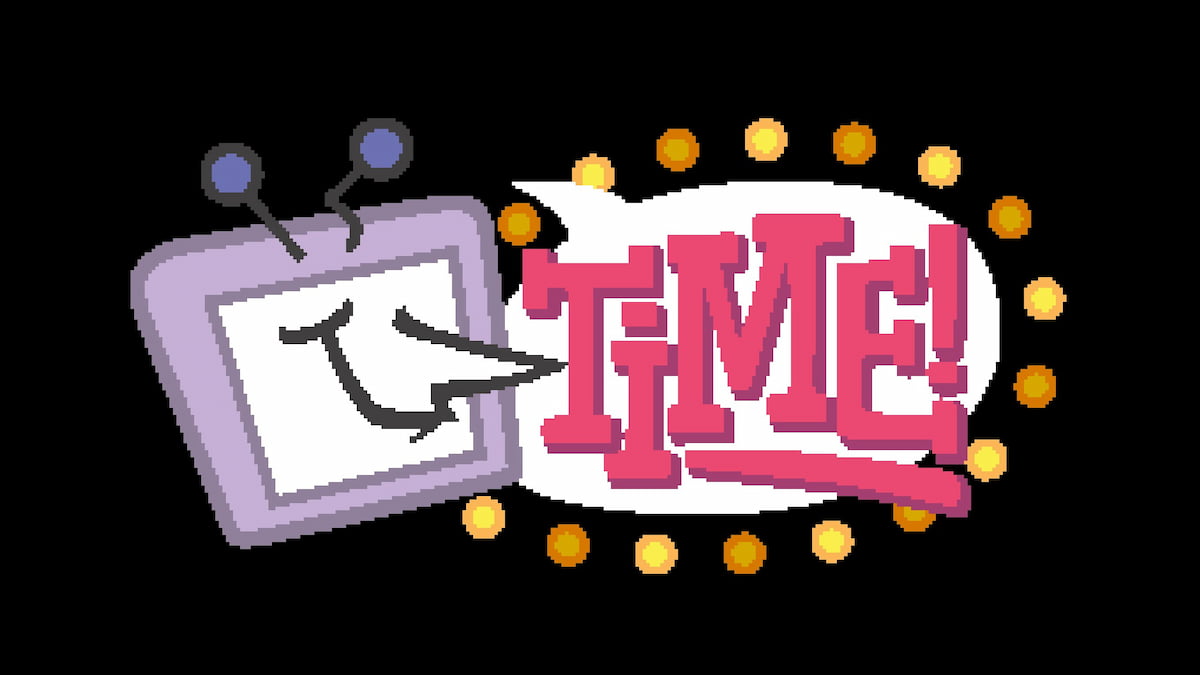

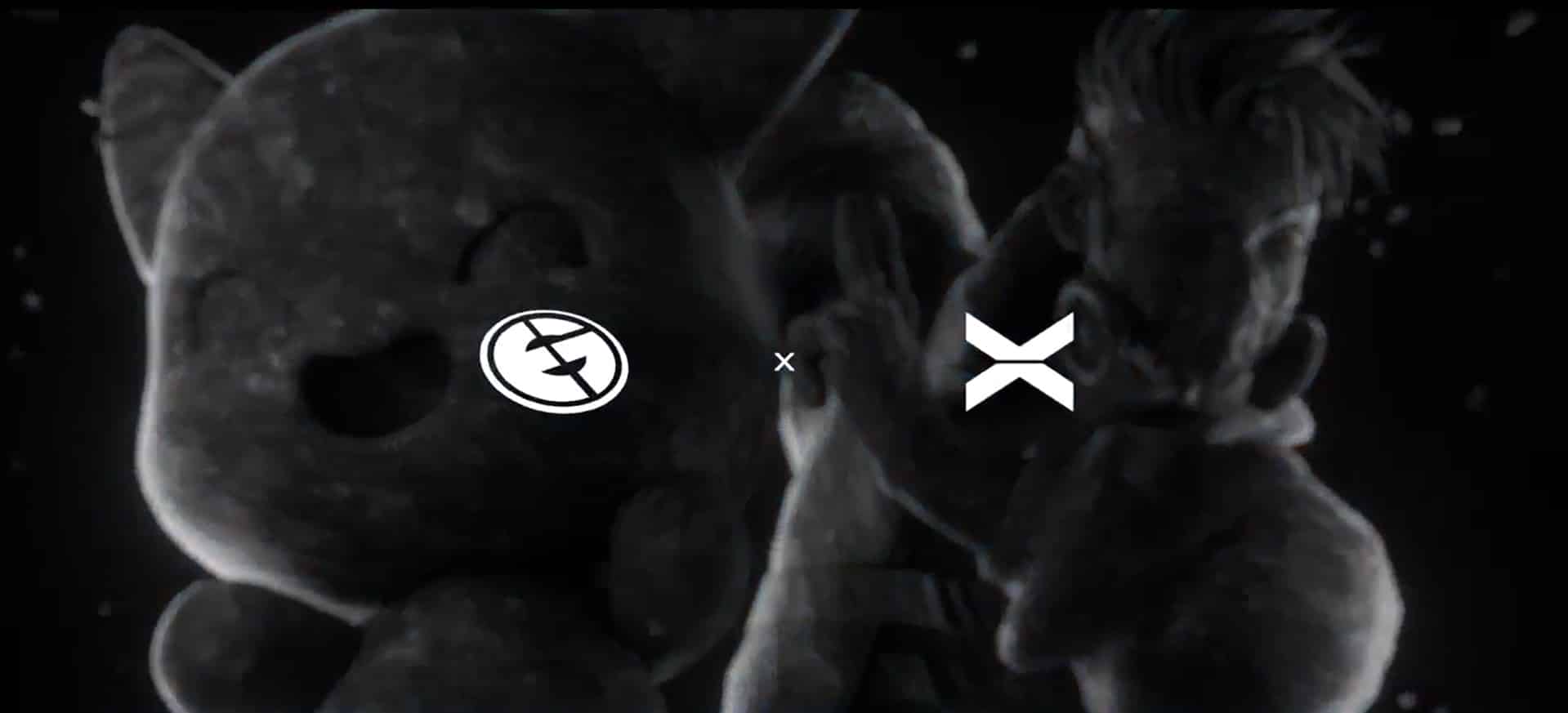





.png?width=1920&height=1920&fit=bounds&quality=70&format=jpg&auto=webp#)




























